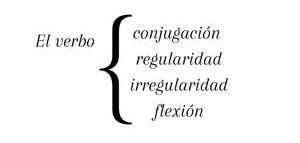A Pandora's box it's a myth Greek which narrates the creation of the first woman and the origin of humanity's evils. Pandora was created by Hephaestus at the request of Zeus. In myth, the creation of Pandora was a way of Zeus She takes revenge on Prometheus and Epimetheus. Revenge was motivated because Prometheus stole fire from Olympus and gave it to men.
Pandora was given in marriage to Epimetheus and was responsible for opening a box (a jar in the original translation) that spread all existing evils across the Earth. The myth of Pandora was narrated by Hesiod in two of his works.
Read too: Hercules—a man, a hero, or a demigod?
Summary about Pandora's Box
In Greek mythology, Pandora was the first woman to be created.
Her creation was carried out by Hephaestus at the request of Zeus.
Zeus created woman to take revenge on Prometheus and Epimetheus.
The revenge was because Prometheus stole fire from Olympus and gave it to men.
Pandora was responsible for opening a box/jar that spread all the existing evils throughout the world. Earth.
Video lesson about Pandora's Box
Who is Pandora in Greek mythology?
Pandora is a character present in Greek mythology, being mentioned twice by Hesiod, one of the main sources of knowledge about Greek myths in antiguity. Pandora is mentioned directly in Work and days and her myth is told in Theogony, although her name is not mentioned in the latter.
Pandora is known in Greek mythology as the first woman to be created, being a creation of Hephaestus, god of metallurgy, at the request of Zeus. In mythology, her creation was the way that Zeus found to punish Prometheus, Epimetheus and men.
Creation of Pandora
Pandora's creation was consequence of an action by Prometheus, a titan who was responsible for creating man and distributing abilities to him and his animals, which he carried out in joint action with his brother, Epimetheus.
Prometheus' brother had to distribute abilities so that man was superior to animals; however, he spent all his resources, leaving the man without any skills that would make him stand out.
Prometheus decided to go to Olympus, where the Greek gods, and there, with the help of Athena, stole the fire and handed it overO to men. Fire was given to men so they could keep warm, light their homes, build weapons and subdue animals. It turns out that the act of Prometheus angered Zeus and the most powerful god in the Greek pantheon decided to take revenge.
The targets of Zeus' revenge were men, Prometheus and Epimetheus, and the Greek myth defines that Zeus decided to create something evil that would be welcomed by them willingly, that is, without knowing what they were doing. receiving. Hephaestus was summoned to raise the woman according to the instructions given by Zeus.
Furthermore, some other gods gave abilities to this woman who was being created — Pandora. Aphrodite gave grace, beauty, and the ability to cause desires; Athena gave manual skills to make things; Hermes gave a secretive mind and great ability to deceive. Finally, Pandora was placed in the best clothes and with the best decorations.
See too: Oedipus myth — one of the best-known stories in Greek mythology
What was inside Pandora's Box?
Zeus presented Pandora to Epimetheus, offering her as a gift, and he was so enchanted by the grace and beauty of Pandora who forgot Prometheus' advice not to accept any gift from Zeus. Epimetheus married Pandora and together they had a daughter, who was named Pyrrha.
Greek myths have some variation on one important detail. One version of the myth says that Pandora was given to Epimetheus with a box as part of the gift (the original translation actually says it was a jar). Another version states that the jar, in fact, was already in Epimetheus' house.
At one point, Pandora was overcome by curiosity and did something she shouldn't have: she opened the box/jar. What she didn't know is that Inside the box were all the evils that could affect humanity and when she opened the box, these evils escaped and spread across the Earth.
Thus, the man was affected by war, disease, hatred, envy, sadness, anger, need to work to survive, etc. Pandora's action put an end to an era of innocence known as the Golden Age.


